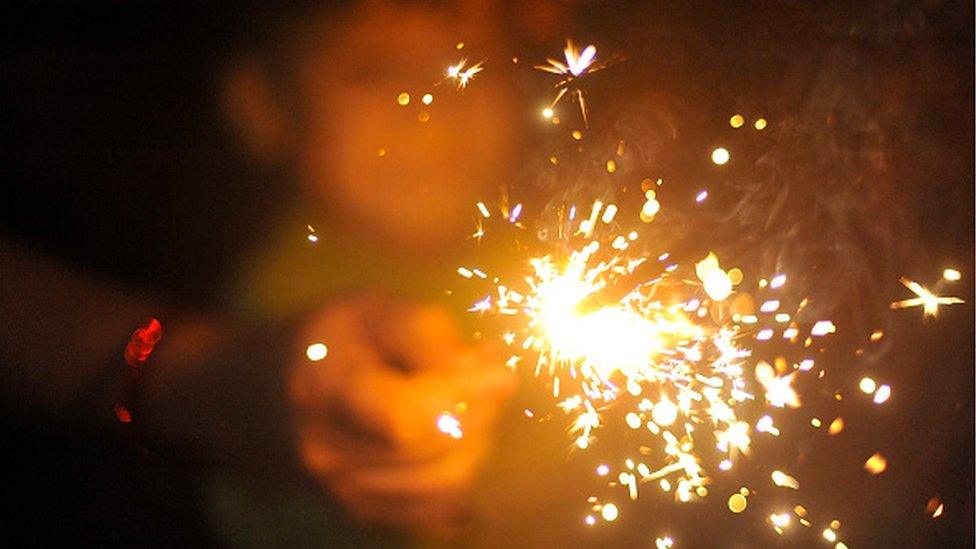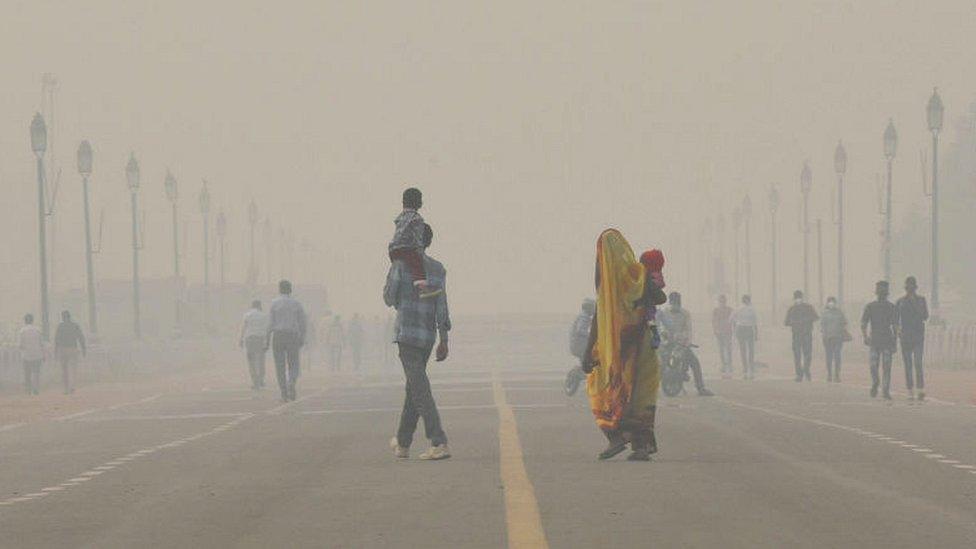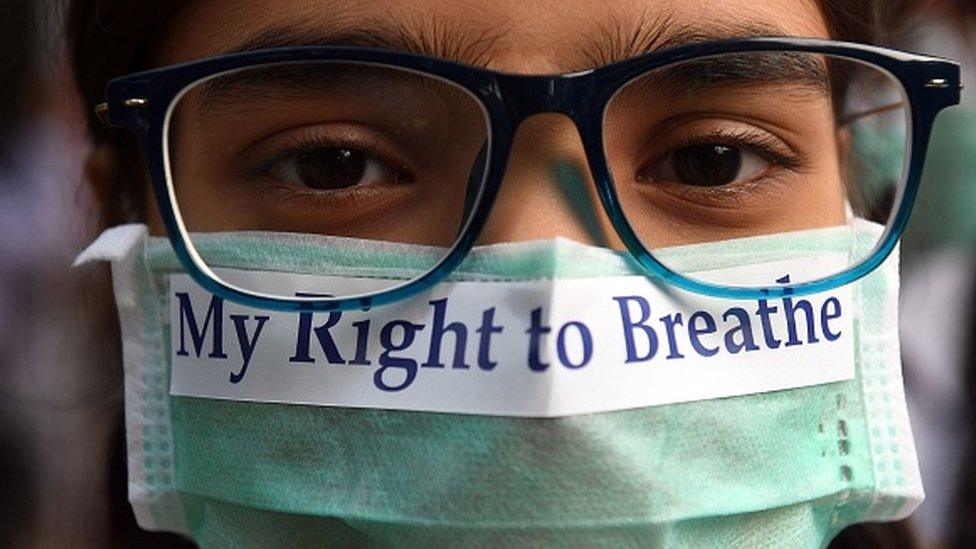Delhi: Six months in jail for those bursting firecrackers on Diwali
- Published

Fireworks during Diwali worsen the air quality as low wind speeds trap the pollutants in the lower atmosphere
People who let off firecrackers in Delhi during Diwali will face up to six months in jail, the city's environment minister has announced amid worsening pollution levels in the Indian capital.
The government has also imposed a fine of 200 Indian rupees ($2.41; £2.15) on those caught bursting firecrackers.
The rules are part of a broader ban on firecrackers announced in September to help curb extreme pollution.
Delhi is the world's most polluted capital.
Various factors such as factory emissions, traffic fumes, and general weather patterns contribute to the high pollution levels in the city.
The air turns particularly toxic every winter when farmers in neighbouring states burn crop stubble. And fireworks during the Hindu festival Diwali worsen the air quality as low wind speeds trap the pollutants in the lower atmosphere.
The smog-filled air, which covers the city during this time, contains dangerously high levels of fine particulate matter called PM2.5 - tiny particles that can clog lungs and cause a host of diseases.
This year too, air quality is expected to dip to the "very poor" category ahead of the festival on 24 October, due to calm winds and the stable atmospheric conditions.
On the air quality index or AQI, a figure between 301-400 is considered "very poor" while zero and 50 is considered "good".
In September, the Delhi government had imposed a complete ban on the production, sale and use of all types of firecrackers till 1 January - a practice it has followed for the last two years.
Environment Minister Gopal Rai on Wednesday said that anyone found storing or selling fireworks will face a fine of up to 5,000 rupees and three years jail.
He added that the government has set up 408 teams - comprising police officials and pollution officers - to implement the rules. Hours later, the police seized over 2,200kg of firecrackers from across the city, Times of India newspaper reported.
"A public awareness campaign will also be run on October 21 to sensitise citizens about the ban," Mr Rai said.
Many, however, have criticised the move, saying it is unfair and harsh. Some have also called the ban "anti-Hindu".
"Why [are] only Hindu festivals causing pollution. If people in Delhi burst crackers for 3-4 hours, how does it matter?" a social media user wrote on Twitter.
Over the years, celebratory fireworks during Diwali has become a sensitive topic in India, with many Hindus arguing that a cracker ban is discriminatory. Several celebrities, who have done anti-cracker campaigns, have been also accused of hurting religious sentiments.

Read more India stories from the BBC:
Related topics
- Published14 June 2022

- Published3 September 2021
